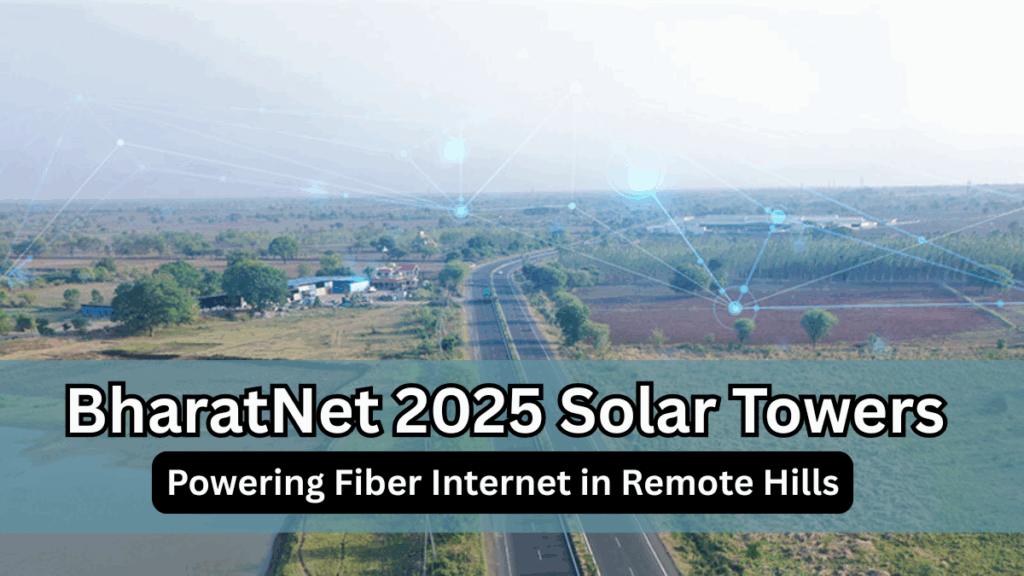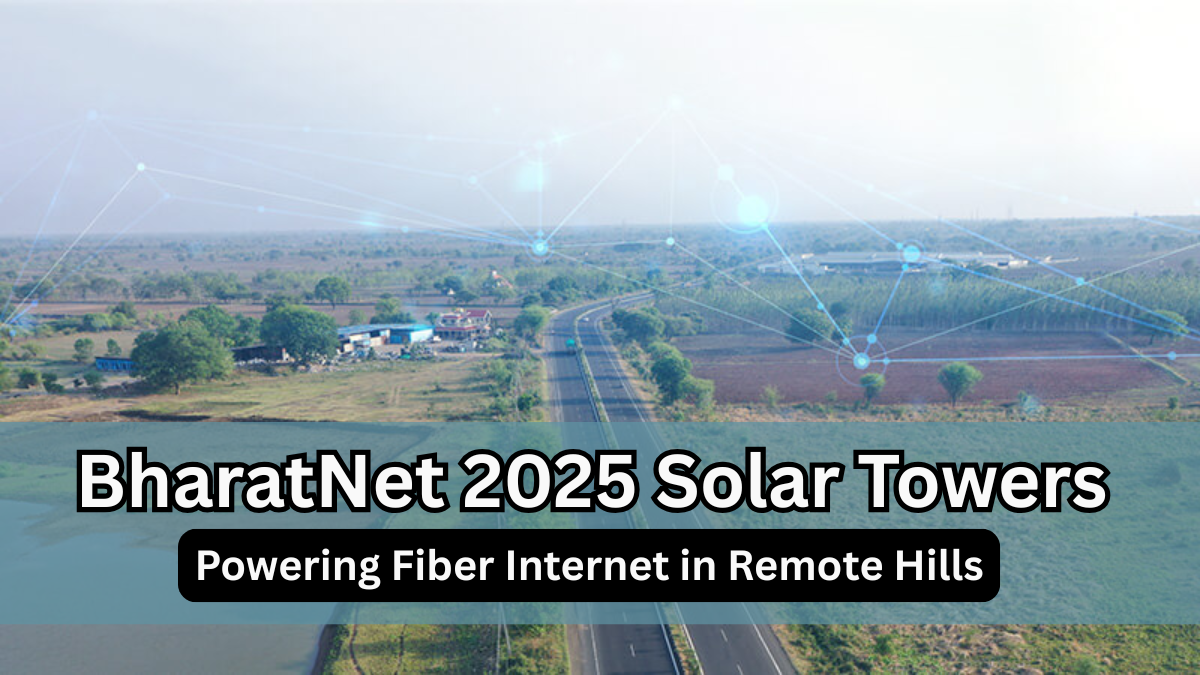India’s digital revolution is expanding beyond cities, reaching even the most remote corners of the country. A major initiative driving this transformation is the BharatNet solar towers 2025, which aim to deliver reliable internet connectivity in hilly and rural regions.
With the increasing demand for high-speed internet across villages and remote settlements, these solar-powered towers are set to play a crucial role in bridging the digital divide.

What Are BharatNet Solar Towers 2025?
The BharatNet solar towers 2025 are state-of-the-art fiber-optic communication towers powered entirely by solar energy. These towers are specifically designed to provide uninterrupted internet access in areas where traditional electricity supply is inconsistent or unavailable.
Key Features
-
Solar-powered energy system for sustainability
-
Fiber-optic connectivity supporting high-speed internet
-
Weather-resistant design suitable for hilly terrains
-
Remote monitoring and maintenance capabilities
How BharatNet Solar Towers Are Transforming Rural Internet India
These towers are not just infrastructure—they are a gateway to digital opportunities for millions living in rural and hilly regions.
Benefits for Rural Communities
-
Education Access: Students can now access online learning platforms and digital libraries.
-
Telemedicine Services: Healthcare facilities can offer online consultations, bridging the gap in remote regions.
-
E-Governance: Villagers can now access government schemes, digital payments, and services more efficiently.
-
Economic Growth: Local businesses can reach wider markets through reliable internet connectivity.
State-Wise Deployment of BharatNet Solar Towers 2025
The government is strategically deploying these towers across states with difficult terrain. Below is an overview:
| State | Number of Towers | Expected Coverage | Special Features |
|---|---|---|---|
| Himachal Pradesh | 120 | Hilly villages | Snow and rain resistant |
| Uttarakhand | 95 | Remote valleys | High-altitude optimization |
| Arunachal Pradesh | 80 | Tribal areas | Solar storage for 48 hours |
| Meghalaya | 75 | Plateau regions | Fiber backbone integration |
| Sikkim | 60 | Mountain villages | Anti-corrosion coating |
This rollout highlights the government’s commitment to enhancing rural internet India through sustainable solutions.
Challenges in Implementing Solar Towers
While the initiative is promising, there are some challenges to consider:
-
Harsh weather conditions can impact solar efficiency
-
Maintenance in remote areas requires specialized teams
-
Initial infrastructure cost is high, though offset by long-term sustainability
Despite these hurdles, the benefits of BharatNet solar towers 2025 far outweigh the challenges, promising a digital leap for rural India.
FAQs About BharatNet Solar Towers 2025
Q1. What is the purpose of BharatNet solar towers 2025?
A1. The towers aim to provide high-speed fiber internet in remote and rural areas, especially where electricity supply is unreliable.
Q2. How do these towers help rural communities in India?
A2. They enable access to online education, telemedicine, digital governance, and business opportunities, transforming rural internet India.
Q3. Are the towers fully solar-powered?
A3. Yes, each tower is powered by solar panels with battery storage, ensuring connectivity even during nights or cloudy days.
Q4. Which states are prioritized for deployment?
A4. States with hilly and remote regions like Himachal Pradesh, Uttarakhand, Arunachal Pradesh, Meghalaya, and Sikkim are prioritized.
Click here to learn more
